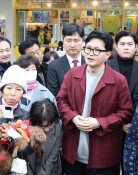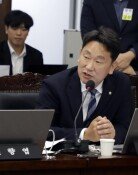[Editorial] We Have to Learn from Crisis in Argentine
[Editorial] We Have to Learn from Crisis in Argentine
Posted December. 22, 2001 12:07,
The resentment of Argentine peoples who have suffered from the lingering economic crisis expelled the president and the entire cabinet after days of rioting. In actuality, there was no other way for Argentine peoples to take. How could people put up with such a situation that over 40 percent of total population have suffered from extreme poverty without both jobs to work and money to buy food? It was the daily necessaries rather than the expensive durable goods that Argentine people looted the stores in capital city Buenos Aires.
How come did Argentina, which had been regarded as a great economic power until the middle of twentieth century, fall into such a terrible situation today? It is a general opinion that Argentina has failed to escape the prolonged economic crisis due to something like `original sins`, which cannot be explained only by the failure of economic policy of a political regime. Many experts explain that the original sins are the accumulated missteps of former governments, which created distrust and egoism to be filled in the Argentine society. In particular, among others, President Juan Peron can be regarded as a representative example of a leader who only left the country immeasurable suffering by obstinately remaining in the populist policy since he took power based on the supports of labor unions.
President Fernando De la Rua, who resigned on Thursday, has taken such strong economic measures as large-scale reduction of official workers` salary and the governmental expenses, and the restriction on withdrawal of a bank deposit, following the IMF`s order that the Argentine government should accomplish `the zero point` of financial deficit in order to receive the relief fund. He explained that it was last resort to revive the country defaulting on its $132 billion debt burden, but there were only few people who could bear the suffering following the tight-financing policy of the government. The people repulsively reacted toward the government which tried to tighten only the belts of people in order to follow the order of IMF, and the labor unions decisively launched a general strike. Moreover, as suspicions were raised that Economy Minister received a large amount of commission in the process of transferring the insolvent short-term foreign bonds to long-term public bonds, the corruption of the government became another cause of conflict.
There is still no concrete sign of negative impact on Korea`s economy of the crisis in Argentine, but we need to watch over what happened in Argentina more carefully. We should look squarely at the reality that the government has lost its credibility due to the repeated power-related corruptions which made people to burn with anger. The Argentina`s crisis should arouse our attention. We should learn from the experience of Argentina that the country could not stand up without people`s trust. And finally, the government should establish the measures for securing the safety of 25,000 Korean residents living in Argentina.







